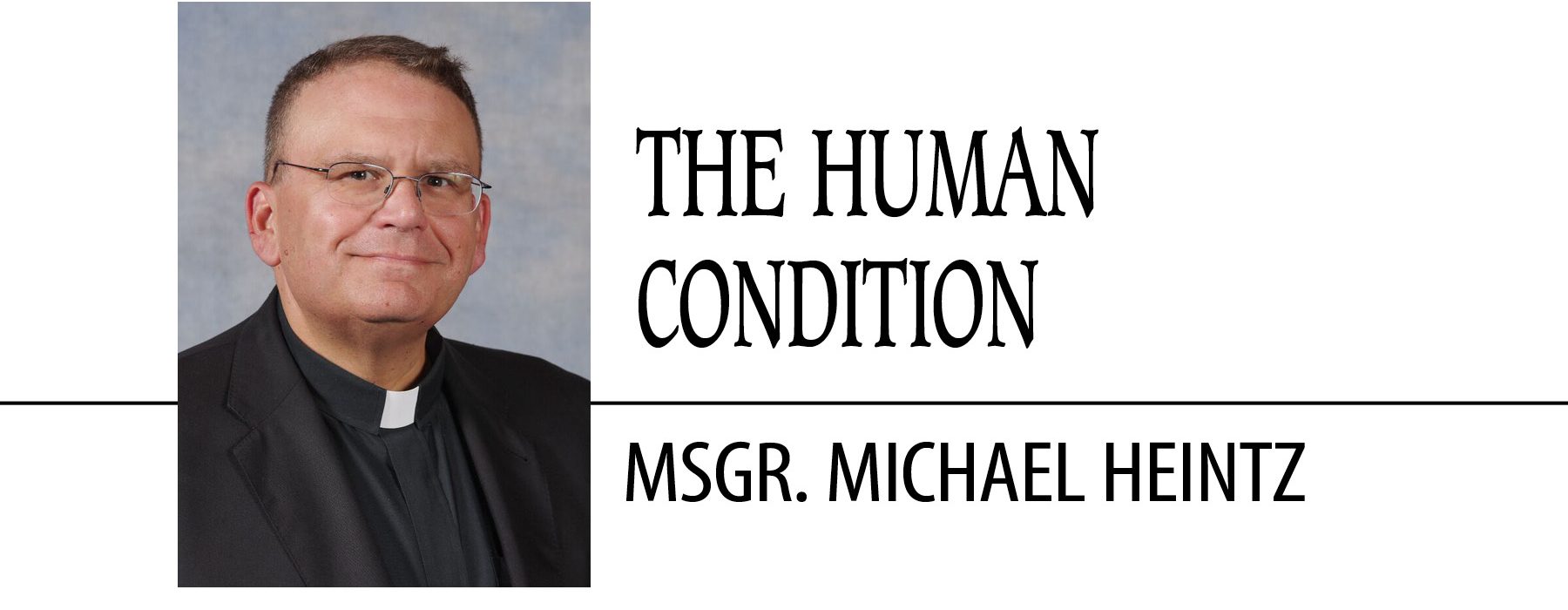November 12, 2019 // Perspective
Discernment and ‘the real’
I was speaking recently with a colleague and friend of mine at the seminary regarding discernment, and he shrewdly pointed out that no one discerns — or even should consider discerning — a vocation in the abstract. What he meant by that wise insight is that when, for example, one is discerning marriage, as he did — he’s a married layman and father who is a professor here — one does not discern “marriage” as an abstraction; rather, one discerns whether he or she is called to marry this particular, concrete person. One cannot fruitfully make any kind of discernment about one’s vocation unless one discerns in regard to something or someone particular and concrete.
“Discernment” is a word much in vogue in Catholic circles today. It has a pedigree reaching back in the Tradition to the Desert Fathers, in whose collected “Sayings” the Greek “diakrisis” is often translated as “discretion”) and it gained particular traction in the wake of the Catholic counter-reformation, as it figures significantly in the spirituality of St. Ignatius of Loyola. This is no doubt a good thing. But it is important to keep the practice of discernment grounded in the “real.”
There are many men and women today, for example, who use the language of “discerning” a vocation, their state of life — marriage, religious life, or priesthood — and undertake this “discernment” quite seriously, and yet almost in a vacuum. For example, a young man may decide to leave seminary because, he announces, he is seeking to “discern marriage.” But unless there is some particular woman who figures in his discernment, there is very little hope that such “discernment” will be of any real value.
Integral to the mystery of our humanity is our particular, embodied existence here and now. Not abstractly, much less in some nostalgic past or any idyllic future we may conjure up: right here, right now, in these concrete, particular circumstances of my life. This is where God is calling me to be holy. If, indeed, the Lord is calling someone to marriage, God is calling him to marry this particular woman, a particular woman intended by God’s providence for him from all eternity. Or, if a woman is called to marriage, it is to that particular man, a particular man intended by divine providence for her from all eternity.
No one can discern marriage to an abstract humanity, not least because one will idealize that spouse, which only impairs one’s capacity to live here and now and in the real circumstances of his or her daily life. Alternately, if someone is discerning religious life, no one can discern such a life abstractly, not least because God does not call us to abstraction, but to a concrete, particular mode of life. So, no one should begin or undertake a discernment to religious life without a particular religious order, community or society of apostolic life in mind. That community then becomes a dialogue partner in the discernment — much like someone, while dating, is engaged in an ongoing conversation with another, a beloved, about their future.
Further, no man can discern priesthood without a sense of being called to a particular diocese or religious order. No man can discern priesthood as an abstraction; not least because no priestly life is lived in the abstract, but rather, it is lived in this particular diocese or in that particular religious community. And this is why no seminary accepts a man who is not sponsored or affiliated with a particular diocese or religious order. There are no freelance priests; thus, there can be no freelance” seminarian, nor can anyone discern priesthood without making that discernment in conversation with a particular diocese or community.
This is part and parcel of the ecclesiology of “communio” articulated at the Second Vatican Council in its dogmatic constitution, Lumen Gentium. No one has an abstract relationship to the Church. No one relates to the Church except through a particular parish: That parish prays, lives and exercises the life of charity in communion with the local bishop. He, the local bishop, in and through his communion with the Bishop of Rome (the Pope) and the other bishops in communion with the Holy Father, is the parish’s (and its members’) living, real and concrete link to the universal Church.
The universal Church is not an abstraction: It is composed of real, concrete persons living in real, tangible communities and who — by the grace of the eucharistic sacrifice and communion — believe, pray and exist in a real, vital communion with one another.
All this to say that, if you’re reading this and you’re discerning your vocation to marriage, religious life or priesthood: Please don’t think you can do so without sustained and serious attention to the particular and concrete circumstances of your life. Pay attention to the real.
Once you discover or enter into a real relationship, then a real discernment, a real conversation with the Lord about His call amidst the particular circumstances of your life, may begin.
The best news. Delivered to your inbox.
Subscribe to our mailing list today.






